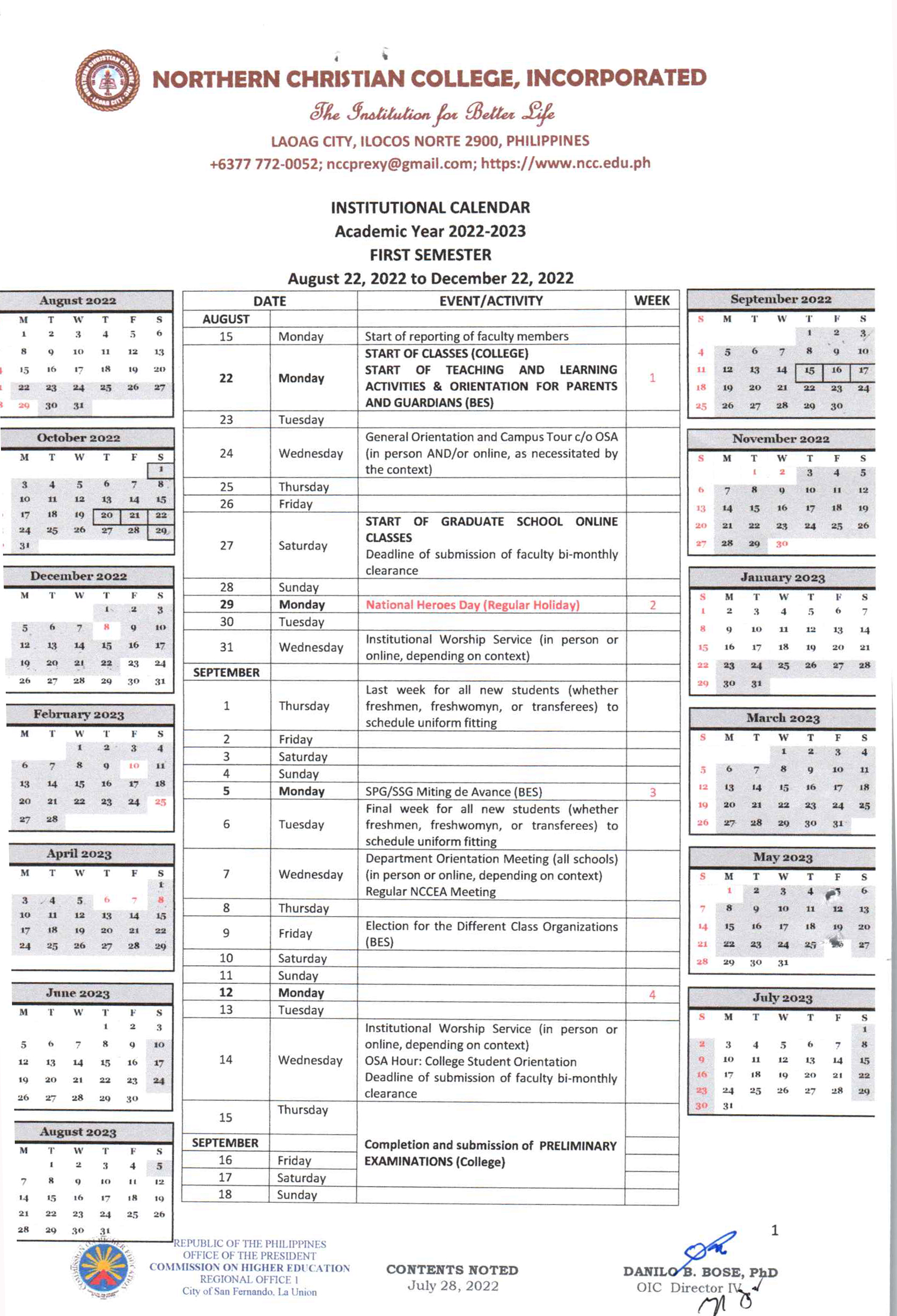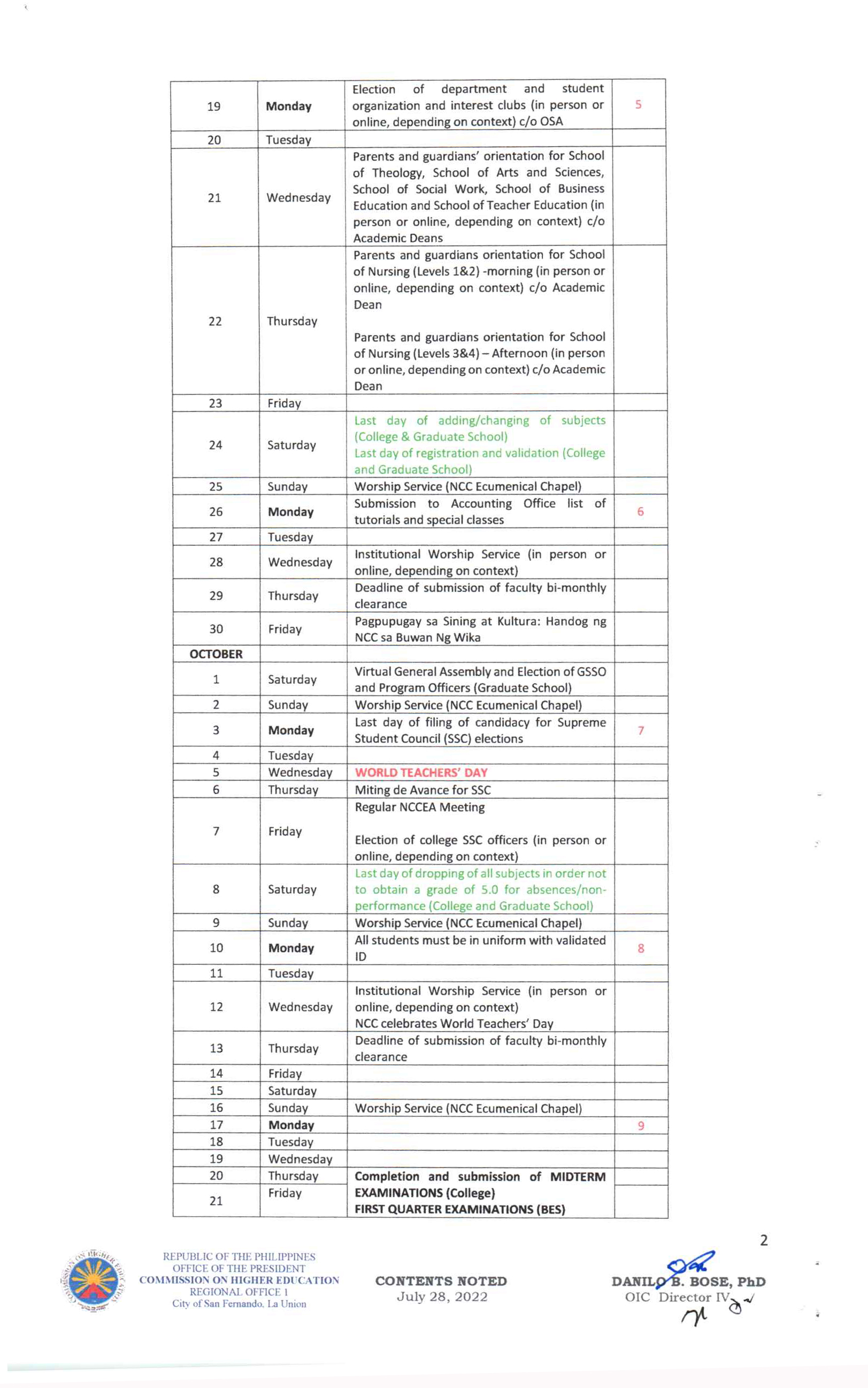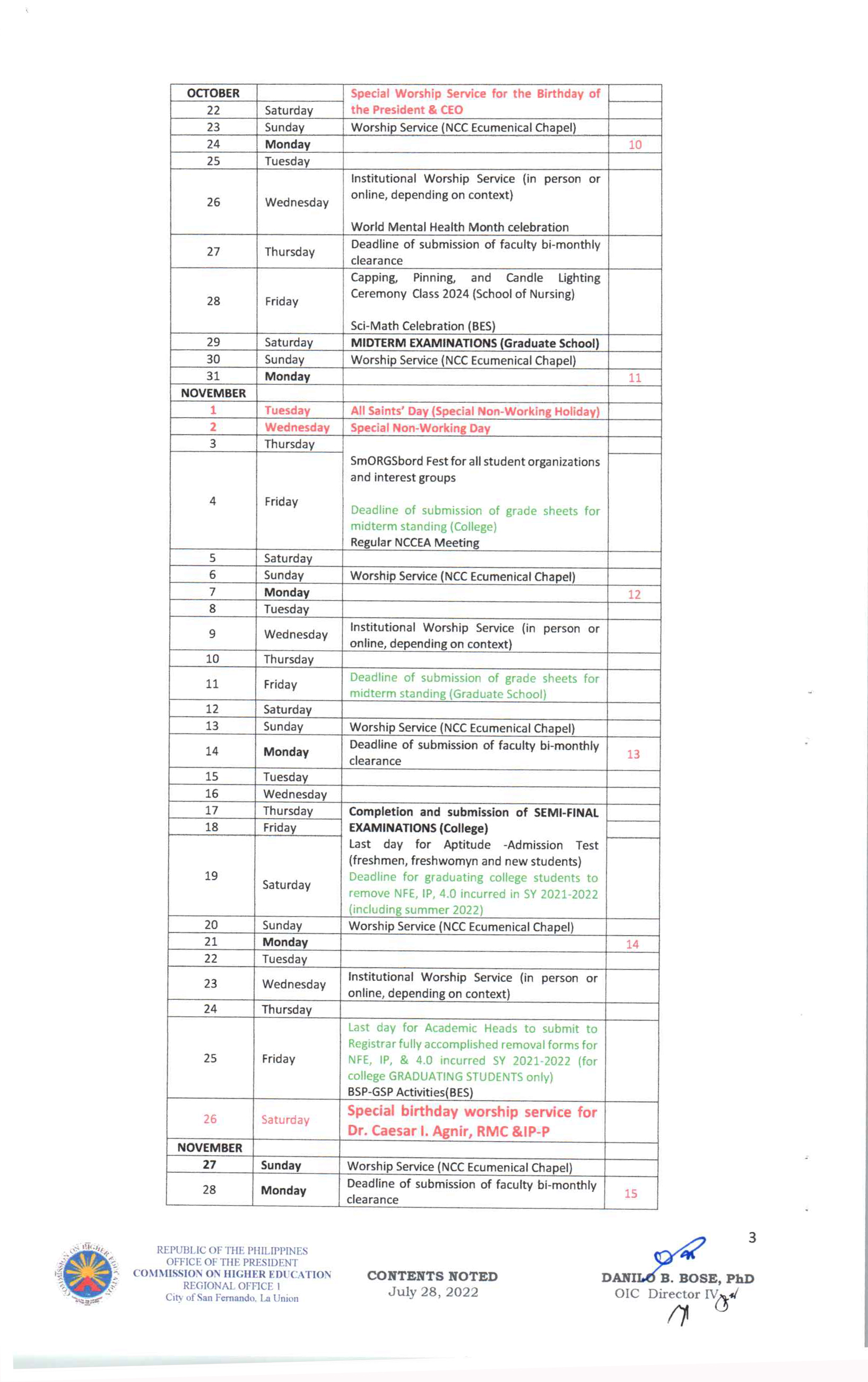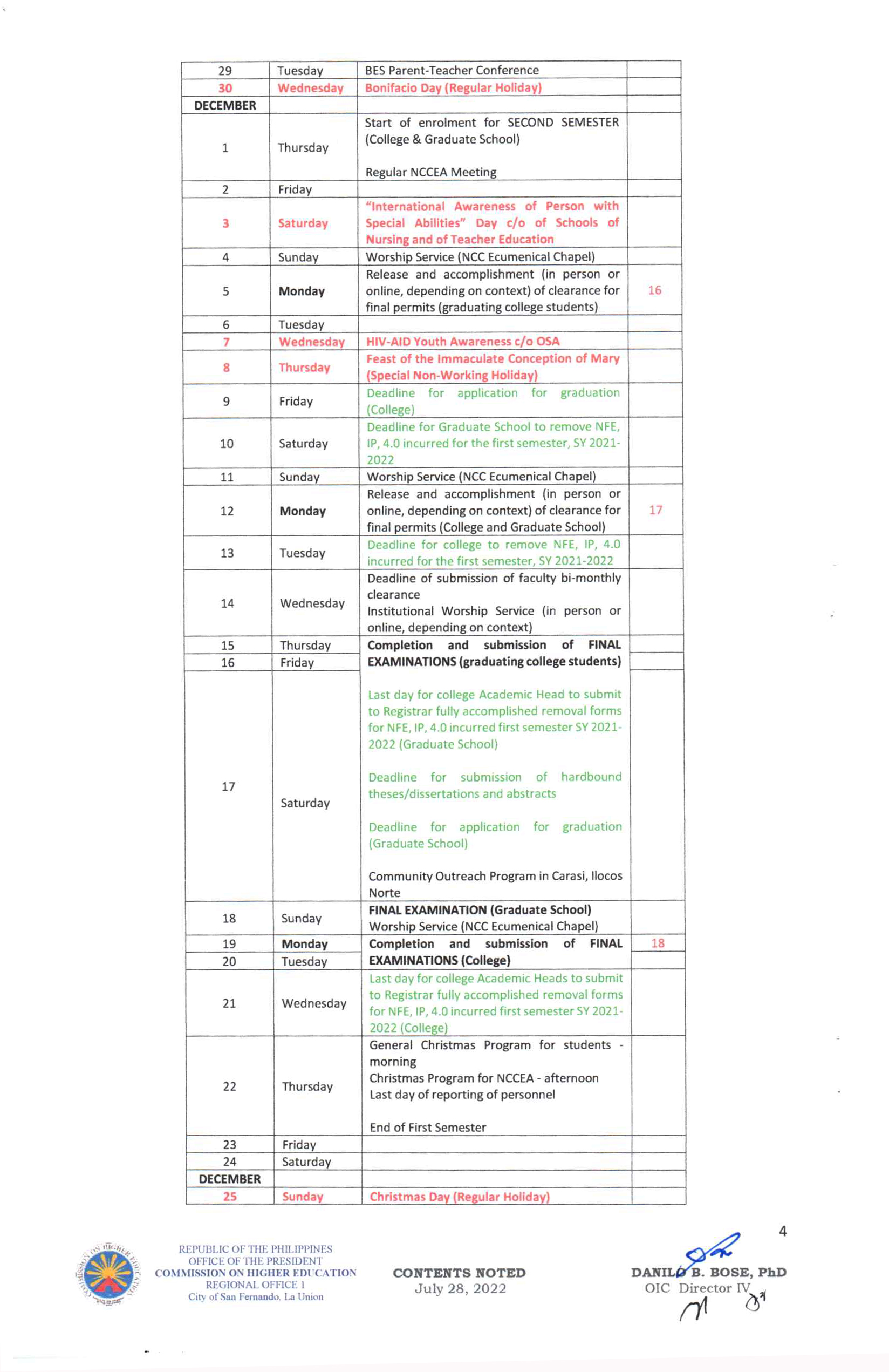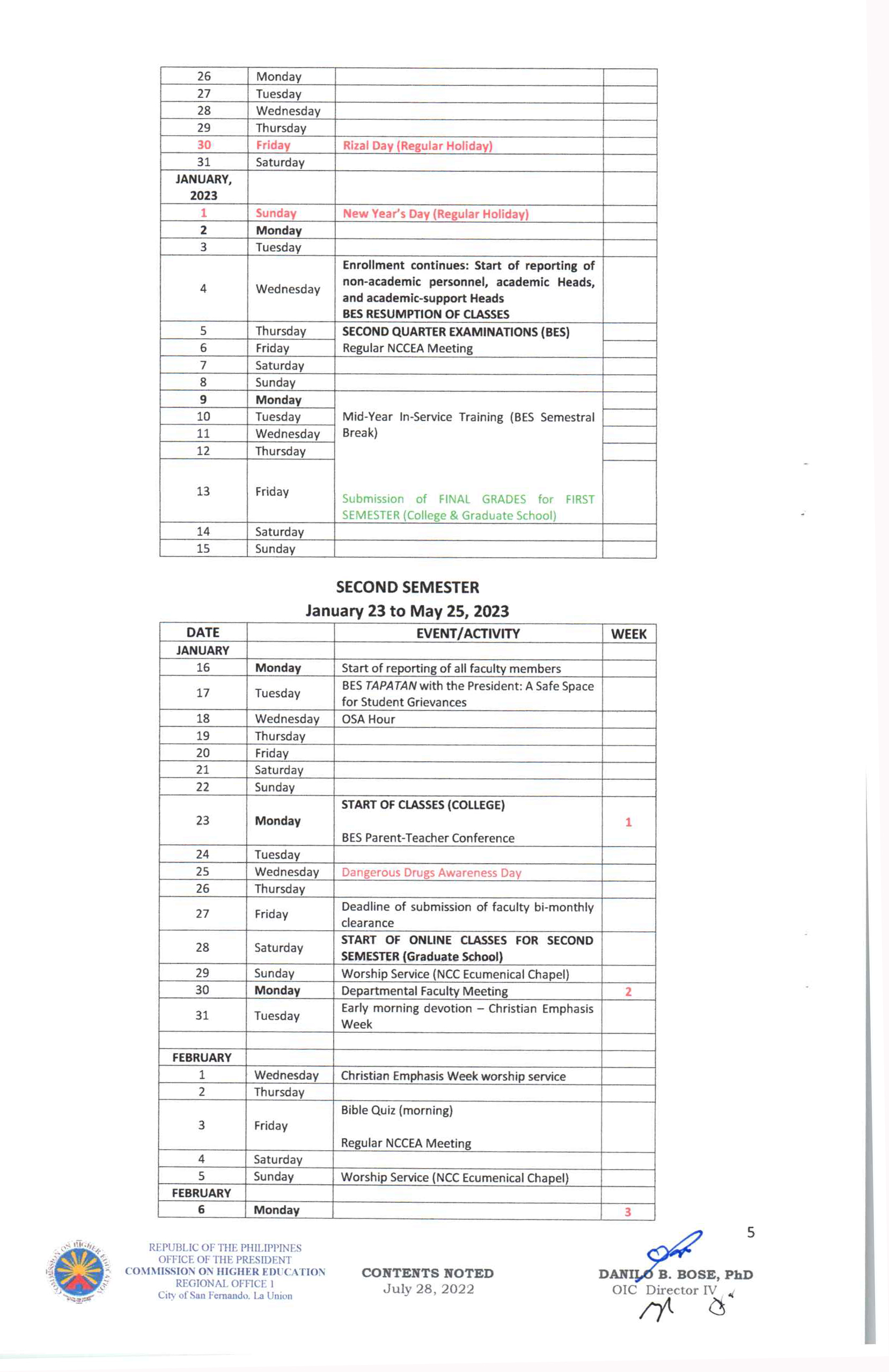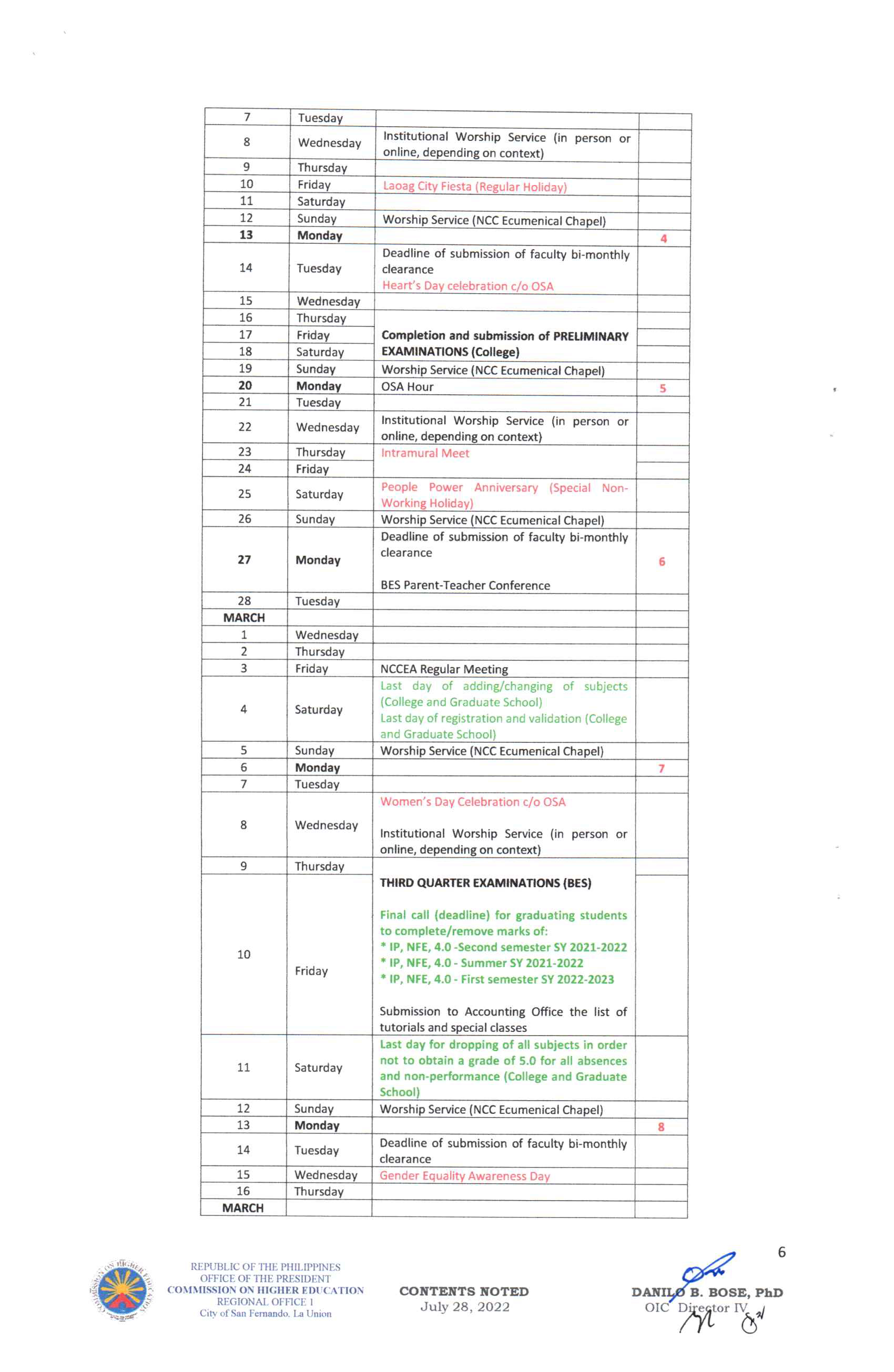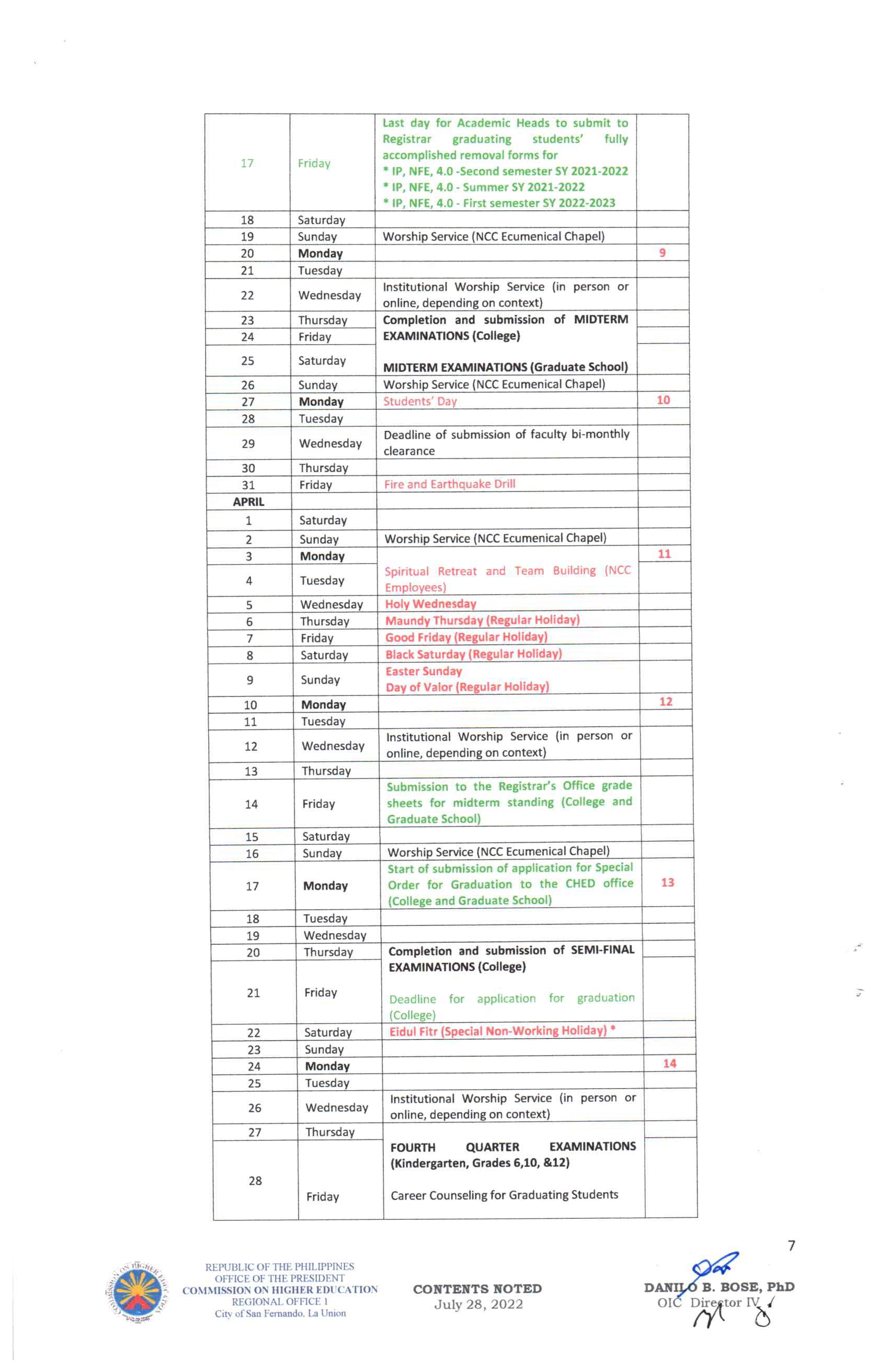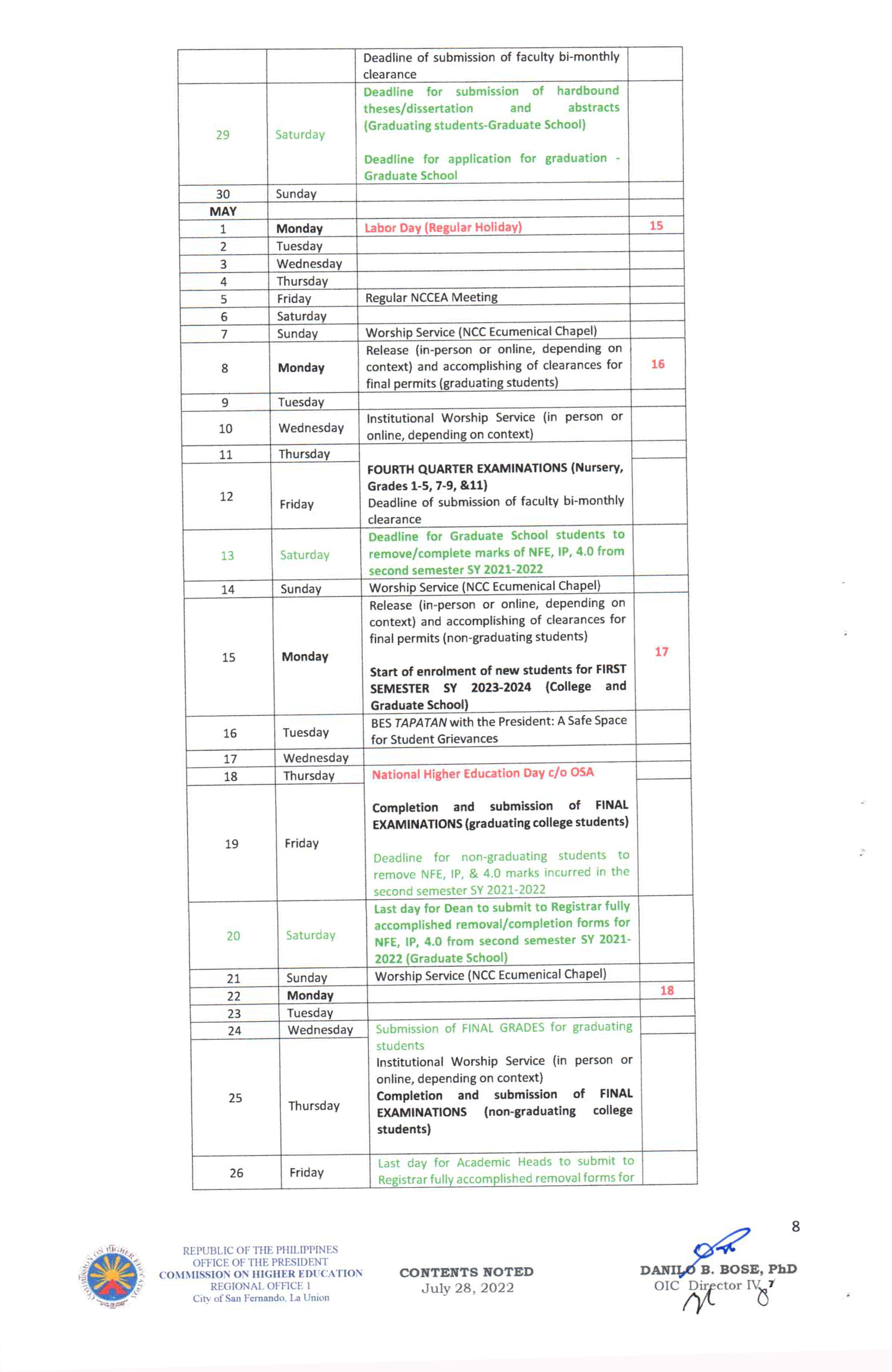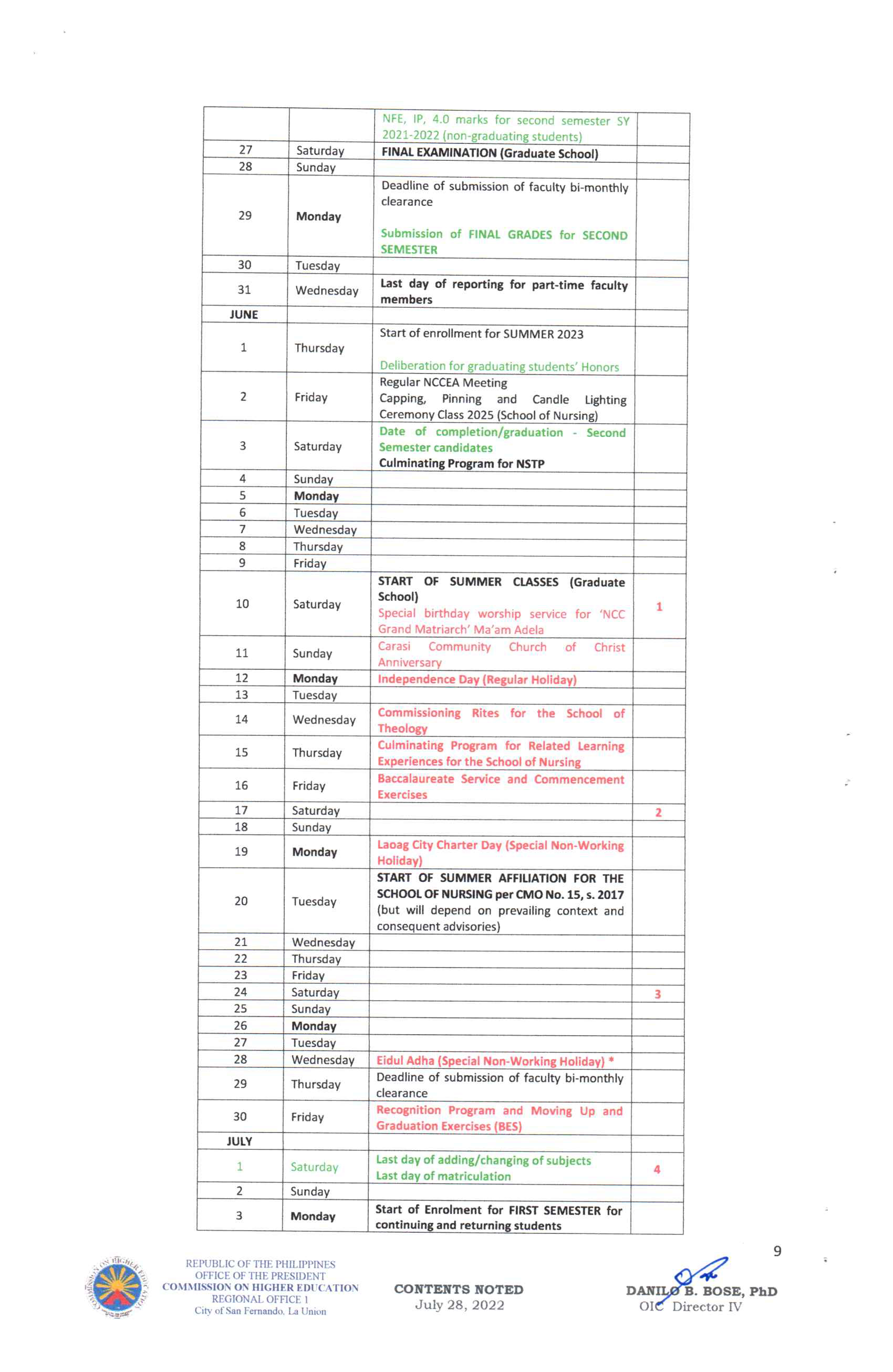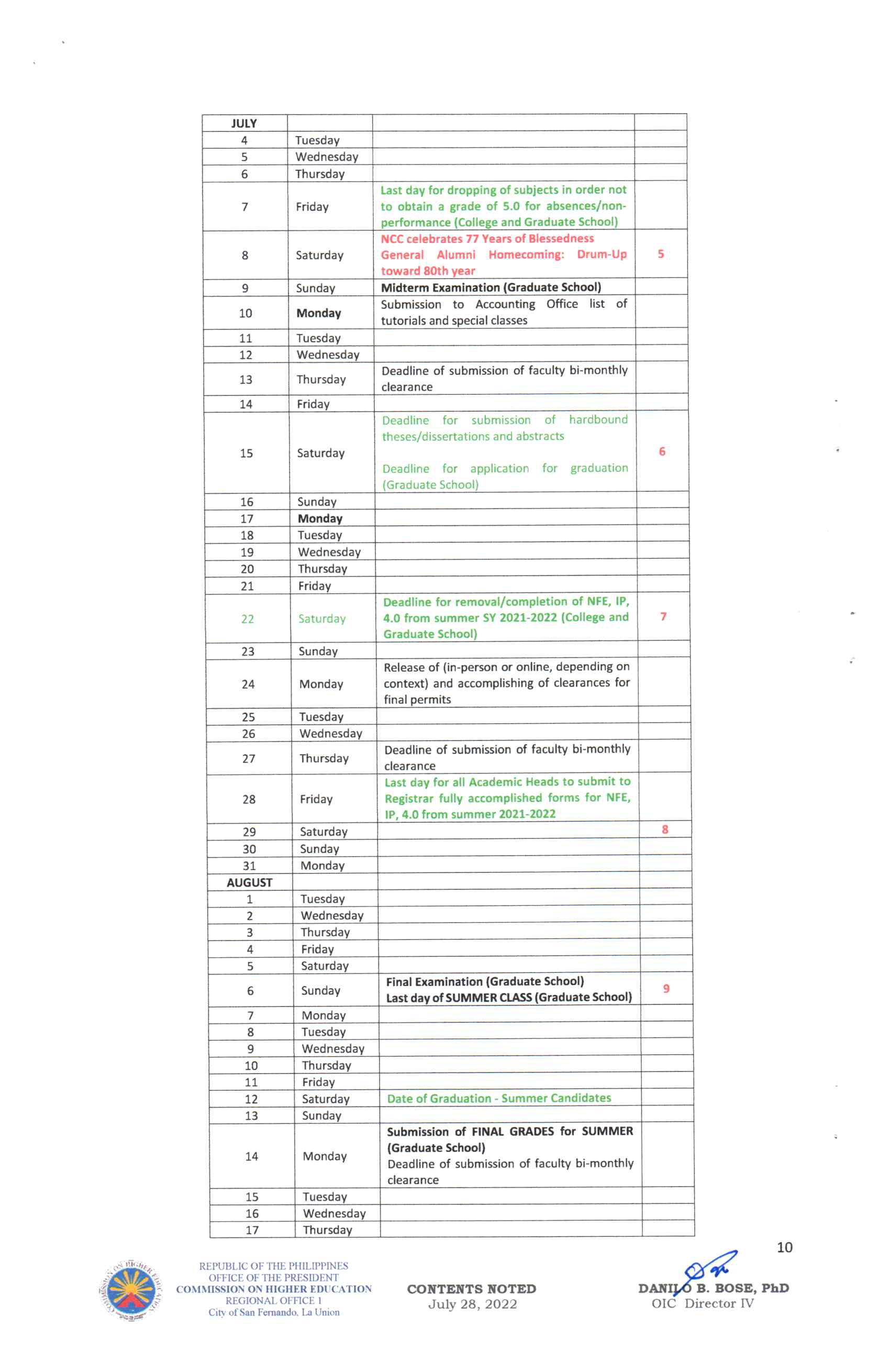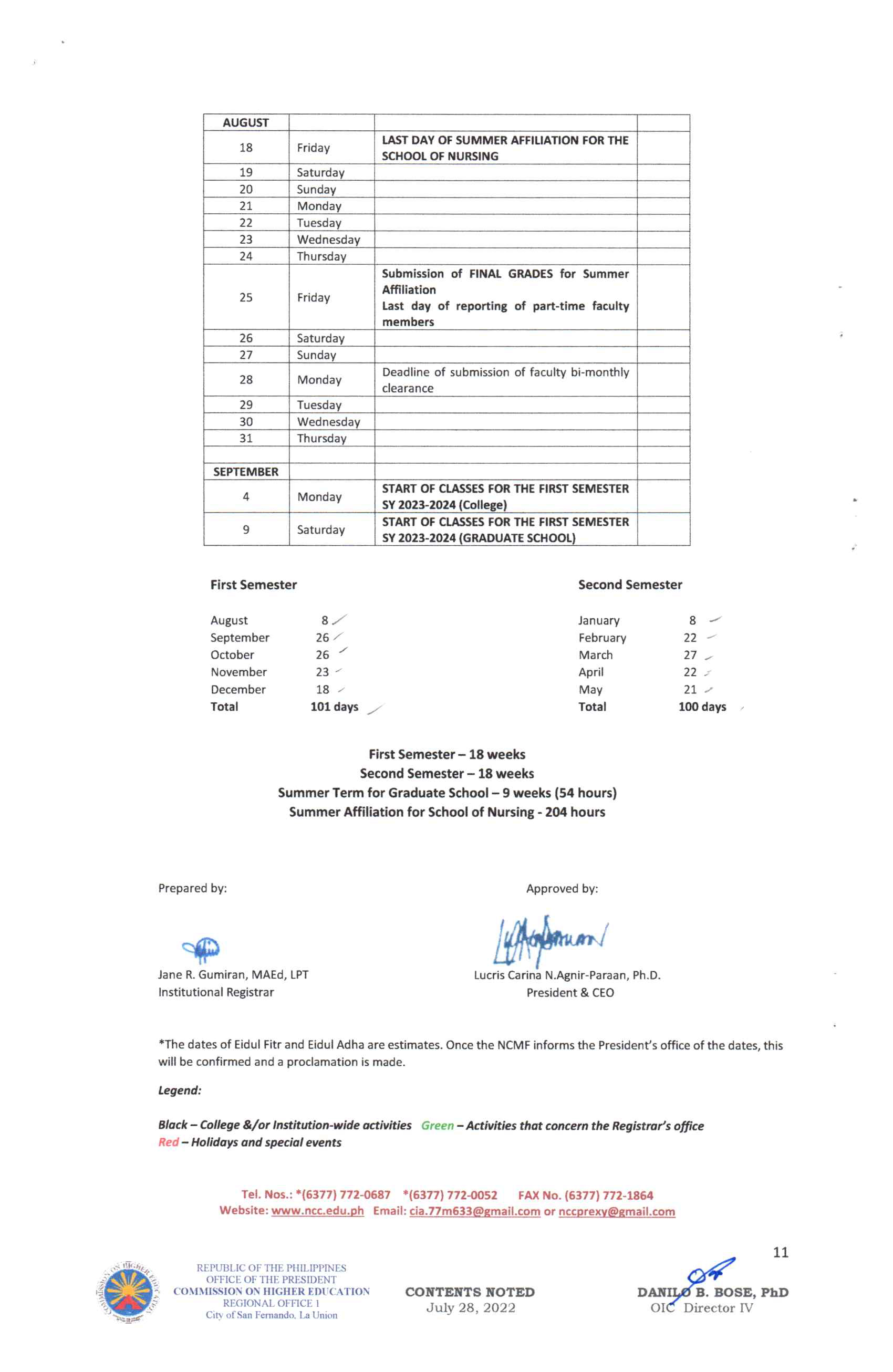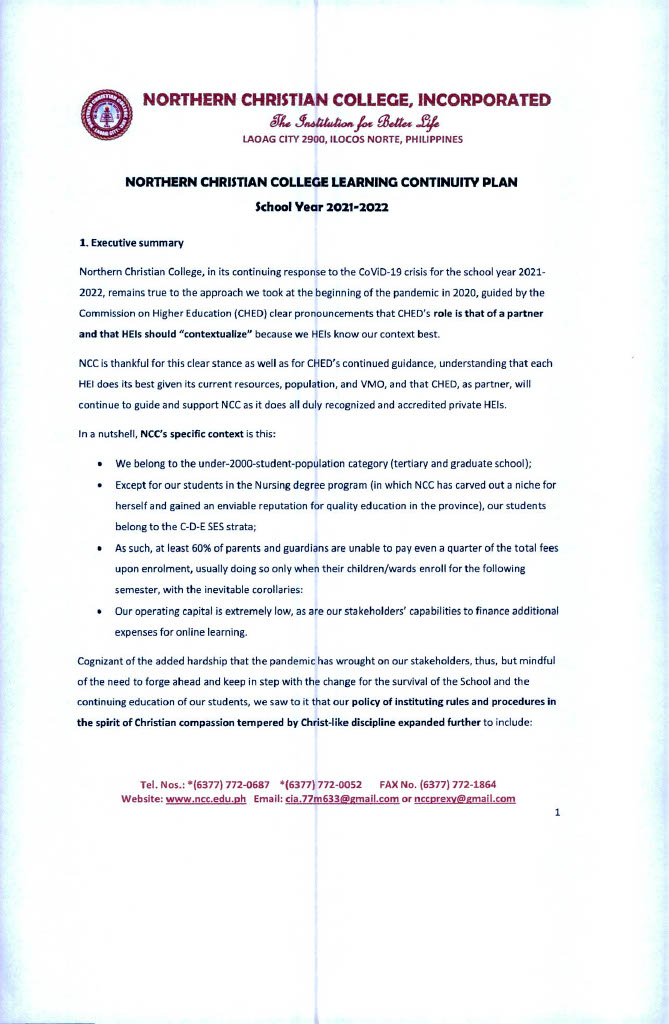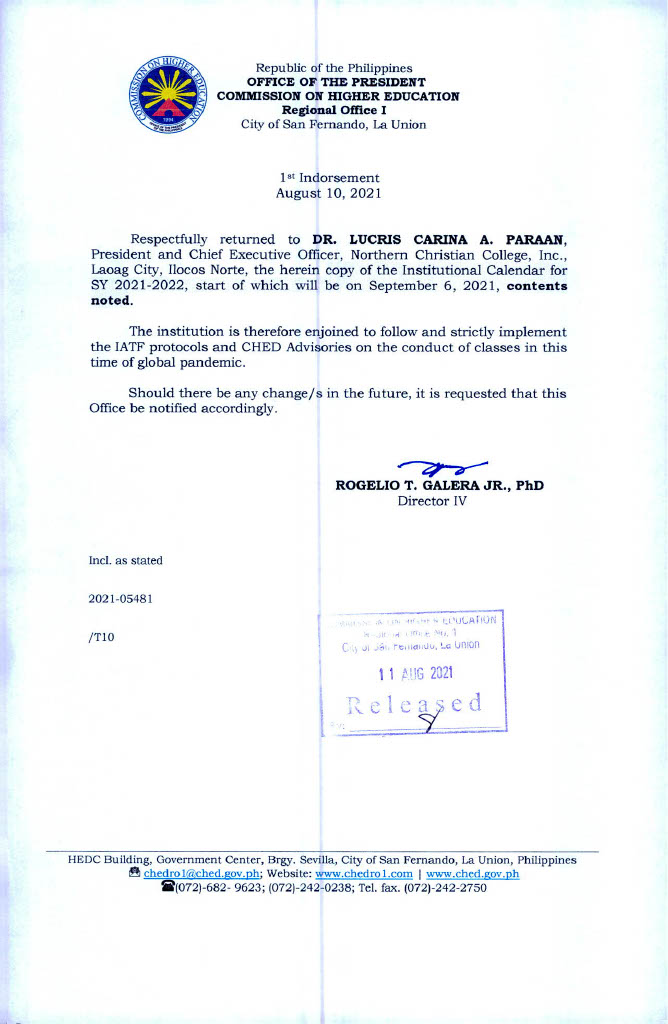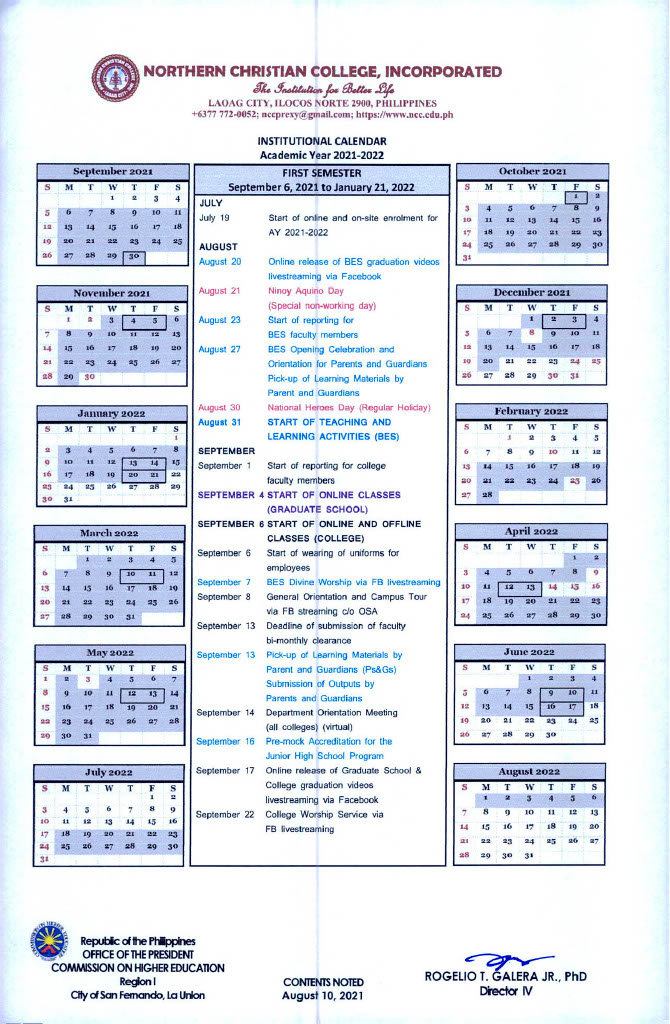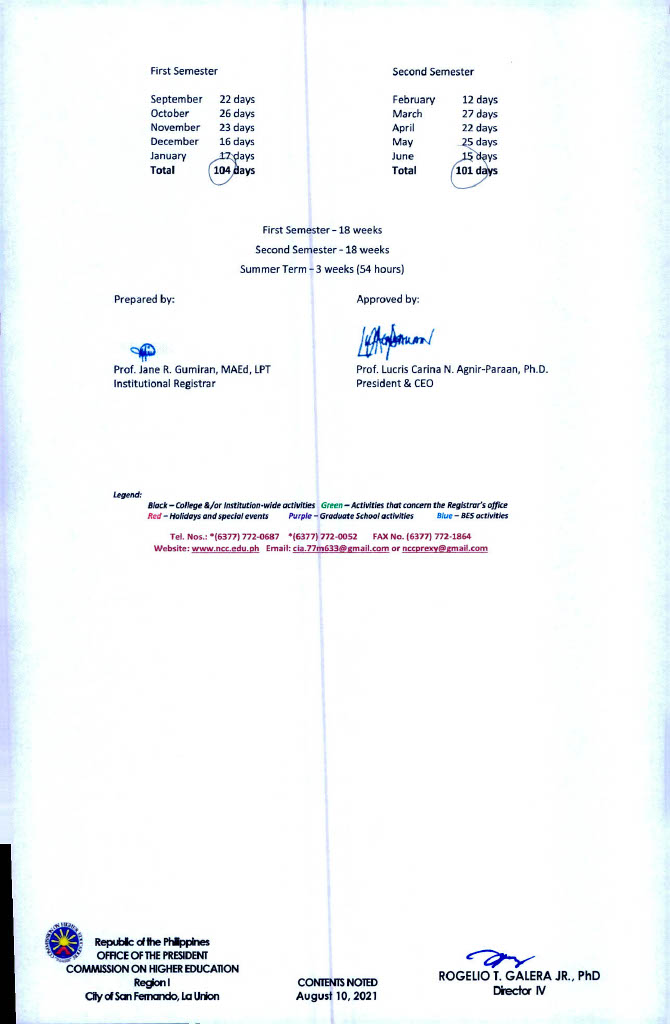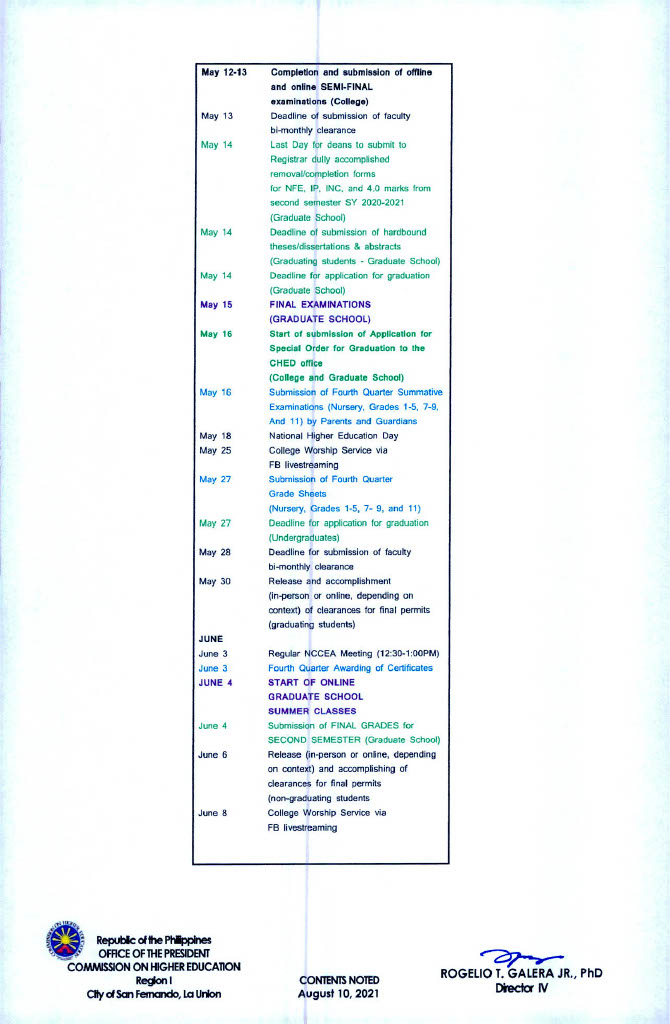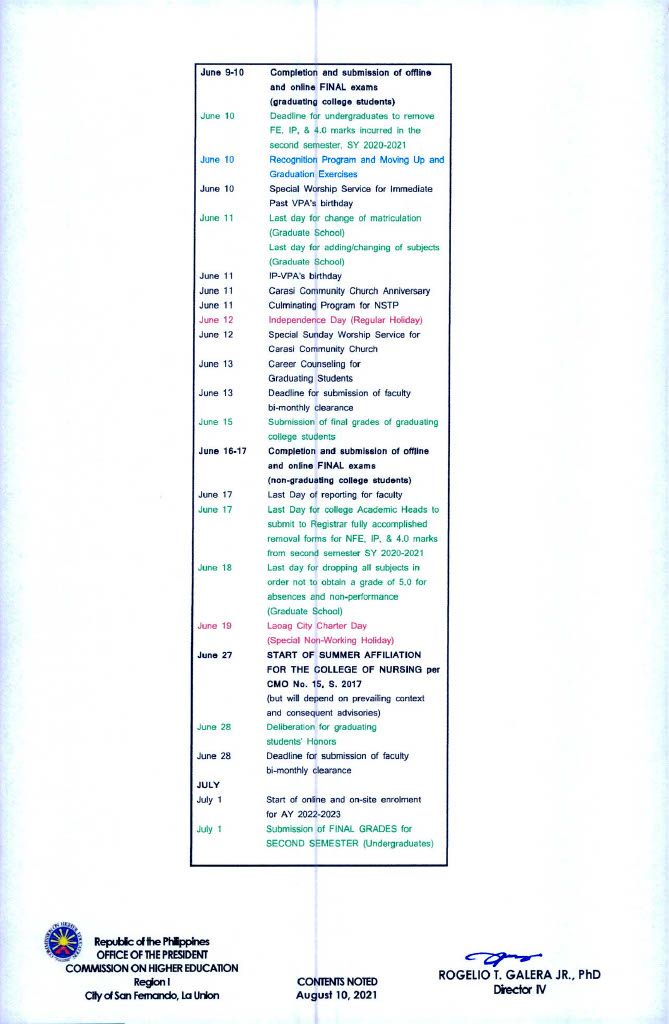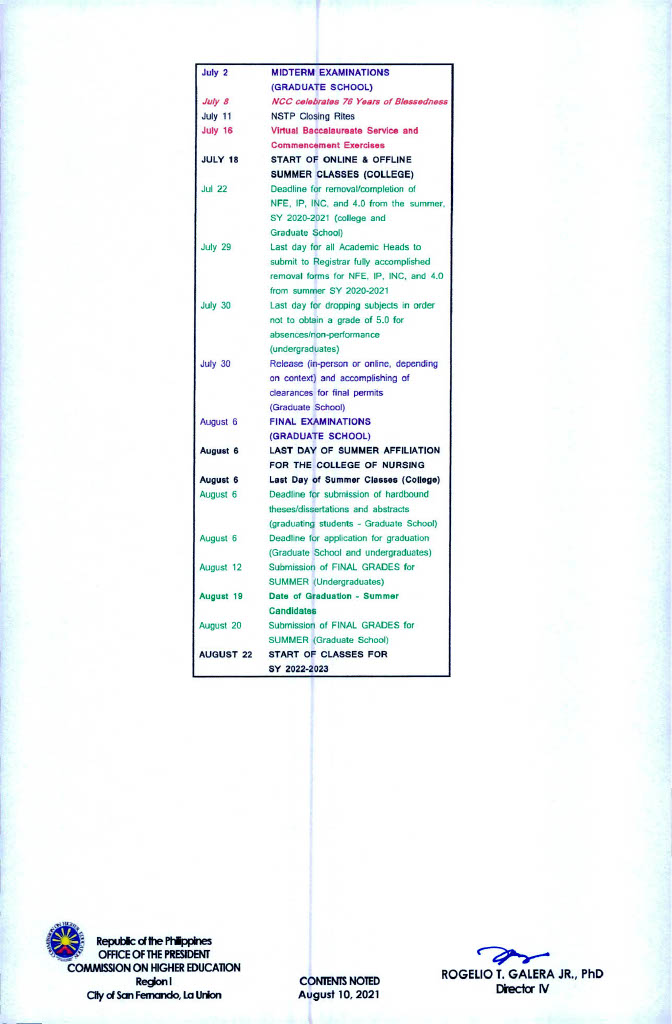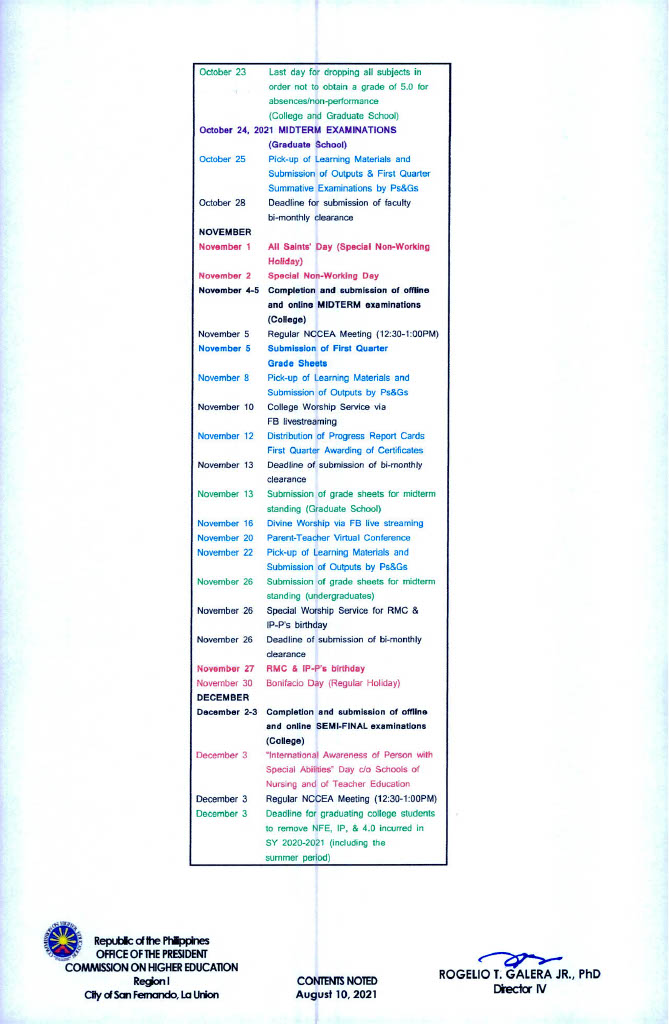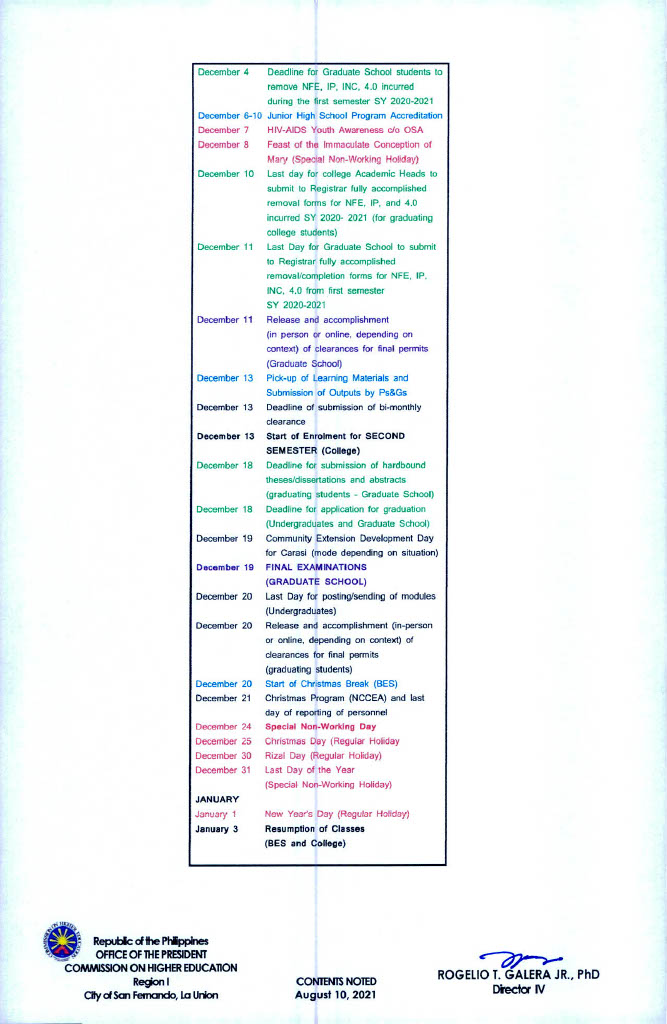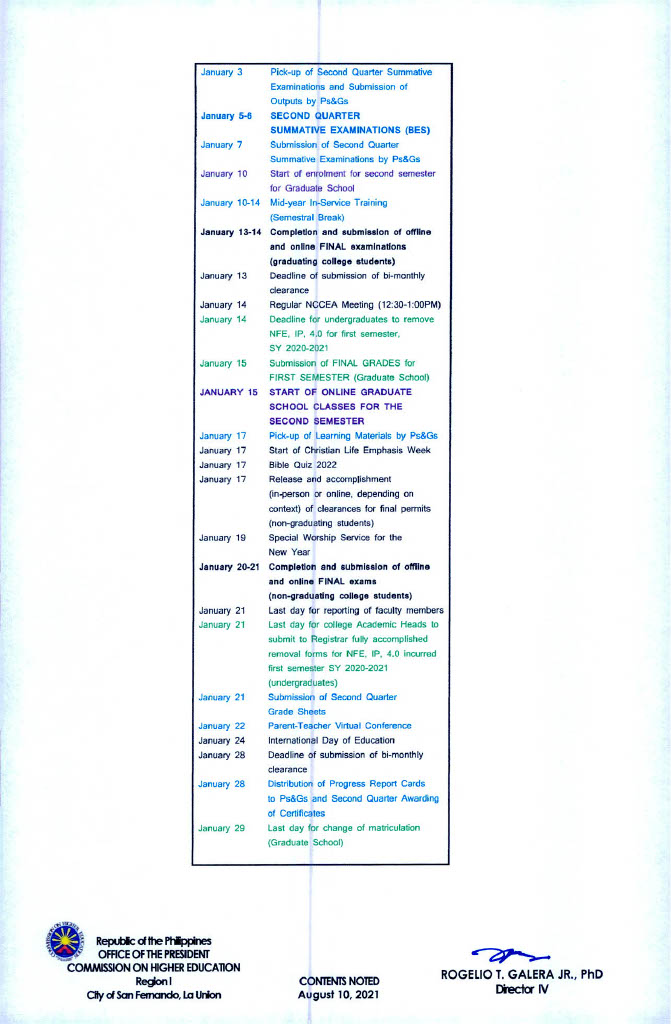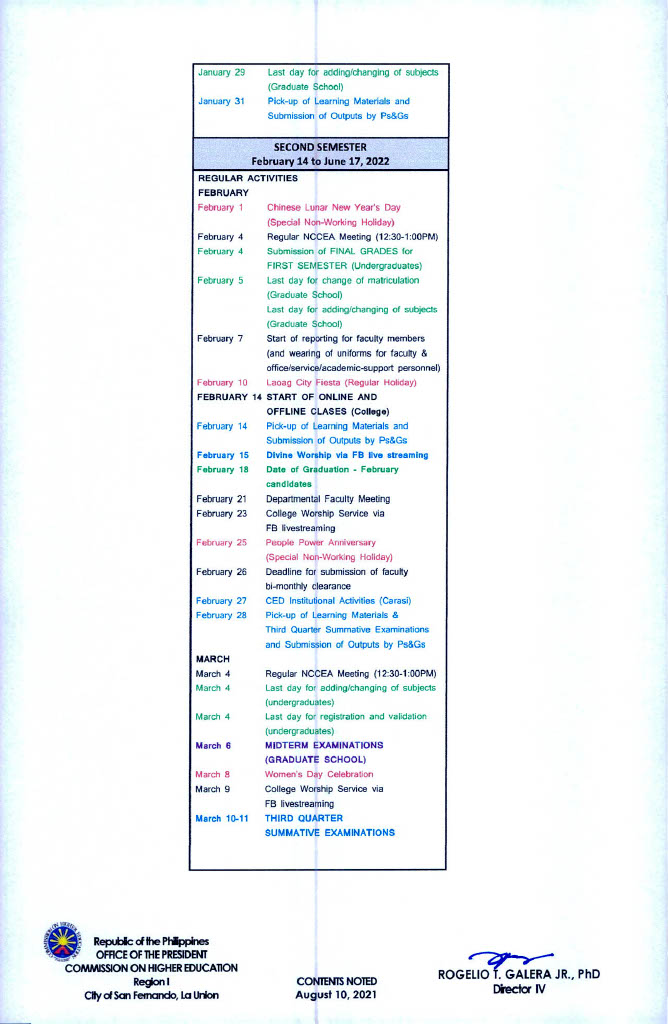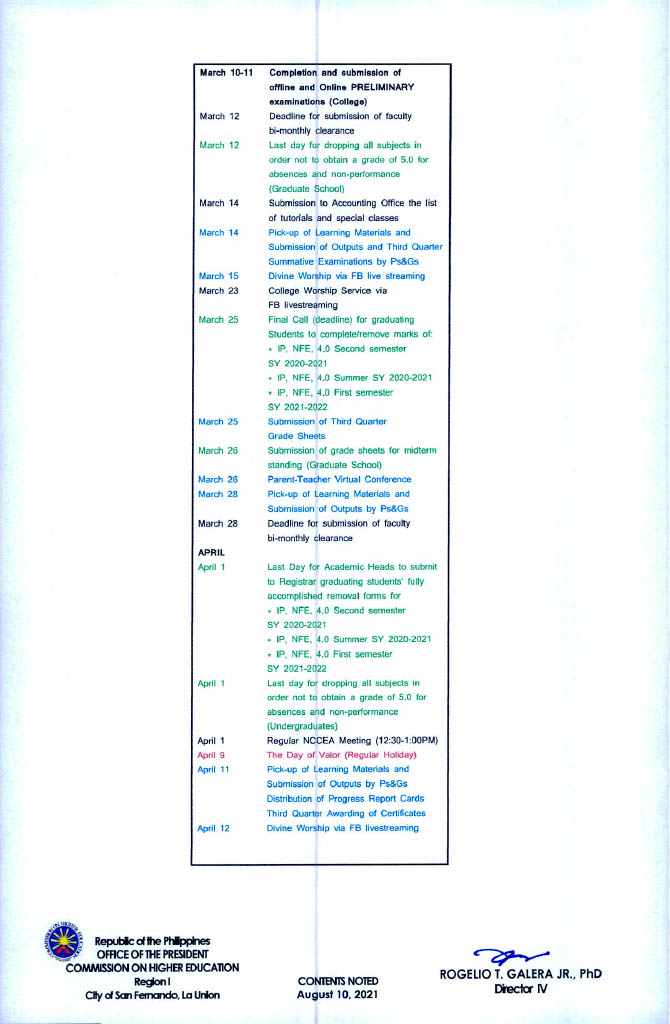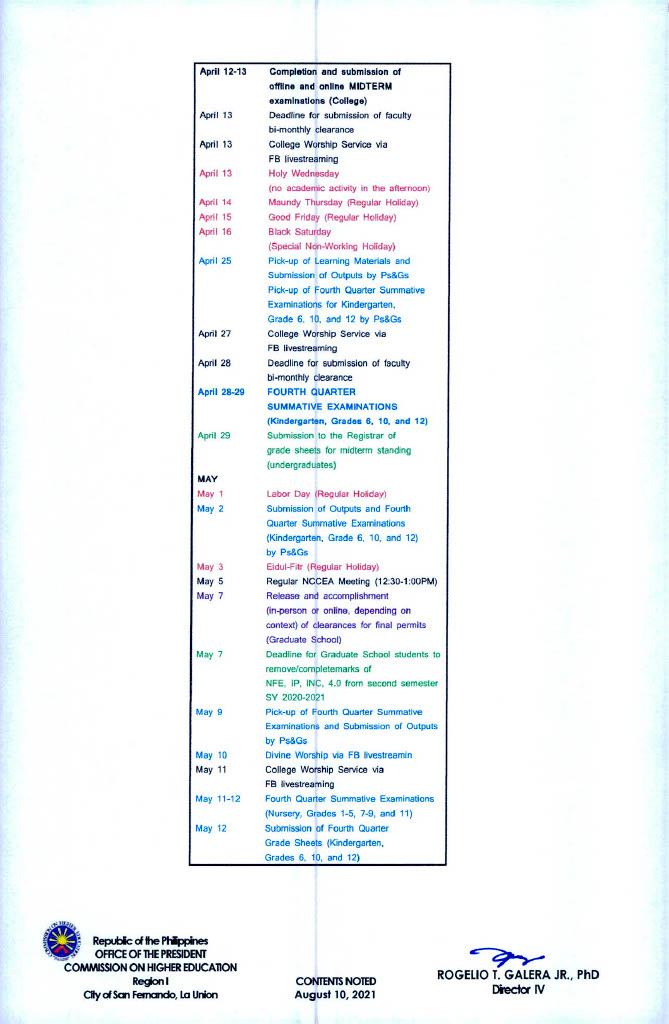Contact Us
Northern Christian College, Inc.
Mabini Street, Laoag City,
Ilocos Norte 2900 Philippines
Fax No. (077) 772-1864
For inquiries, please email the Unit Head concerned:
- For enrollment requirements as well as available scholarships, loans, and grants tuition fees: This email address is being protected from spambots. You need JavaScript enabled to view it.;
- For tuition and miscellaneous fees: This email address is being protected from spambots. You need JavaScript enabled to view it.
- For questions regarding your chosen degree program other than topics in 1 and 2 above:
For Graduate School: This email address is being protected from spambots. You need JavaScript enabled to view it. cc: This email address is being protected from spambots. You need JavaScript enabled to view it.
For Nursing: This email address is being protected from spambots. You need JavaScript enabled to view it. cc: This email address is being protected from spambots. You need JavaScript enabled to view it.
For Teacher Education: This email address is being protected from spambots. You need JavaScript enabled to view it. cc: This email address is being protected from spambots. You need JavaScript enabled to view it.
For Theology: This email address is being protected from spambots. You need JavaScript enabled to view it. cc: This email address is being protected from spambots. You need JavaScript enabled to view it.
For Arts and Sciences: This email address is being protected from spambots. You need JavaScript enabled to view it. cc: This email address is being protected from spambots. You need JavaScript enabled to view it.
For Social Work: This email address is being protected from spambots. You need JavaScript enabled to view it.
For Business Education: This email address is being protected from spambots. You need JavaScript enabled to view it. cc: This email address is being protected from spambots. You need JavaScript enabled to view it.
For K-to-12 (Basic Education School): This email address is being protected from spambots. You need JavaScript enabled to view it. cc: This email address is being protected from spambots. You need JavaScript enabled to view it.
- For other academic matters not covered above: This email address is being protected from spambots. You need JavaScript enabled to view it.
- For special cases (not covered above) such as appeals of pending cases, email the website administrator.
Pleased Visit our Website Pleased Visit our Facebook Page


COURSES OFFERED
GRADUATE SCHOOL
Doctor of Education (Ed. D.)
Major in: Educational Management
Master of Arts in Education (MAEd.)
Major in: Educational Supervision and
Management, Guidance and Counseling,
Instructional Management
Master in Public Administration (MPA)
UNDERGRADUATE PROGRAM
SCHOOL OF THEOLOGY
Bachelor of Arts in Theology
SCHOOL OF BUSINESS EDUCATION
Bachelor of Science in Business Administration
Major in: Financial Management, Marketing
Management, Human Resources Management,
Operation Management
Bachelor of Science in Hospitality Management
Bachelor of Science in Office Administration
SCHOOL OF NURSING
Bachelor of Science in Nursing
SCHOOL OF ARTS AND SCIENCES
Bachelor of Arts in Political Science
Bachelor of Arts in English Language
SCHOOL OF SOCIAL WORK
Bachelor of Science in Social Work
SCHOOL OF TEACHER EDUCATION
Bachelor of Elementary Education (BEEd)
Bachelor of Secondary Education (BSEd)
Major in: English, Filipino, Mathematics, Science, Social Studies, Values Education
BASIC EDUCATION SCHOOL
High School (Junior and Senior High School)
Elementary, Kindergarten, Nursery
More Articles ...
Page 10 of 16


